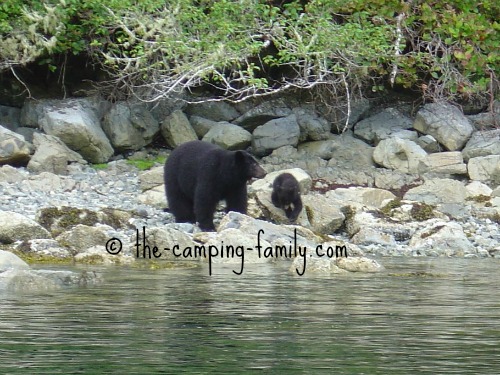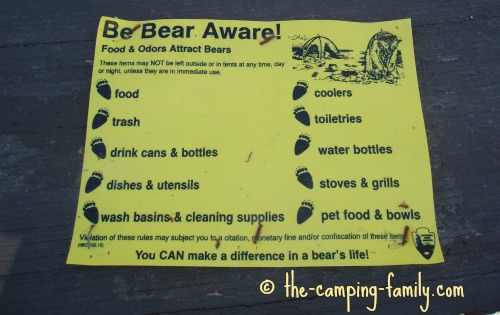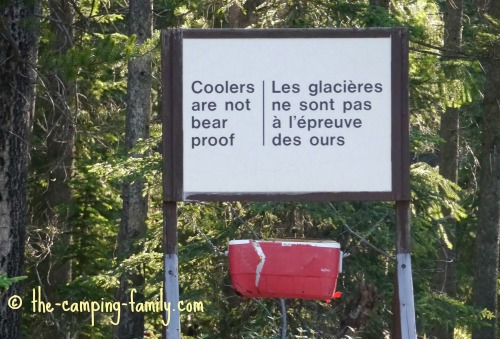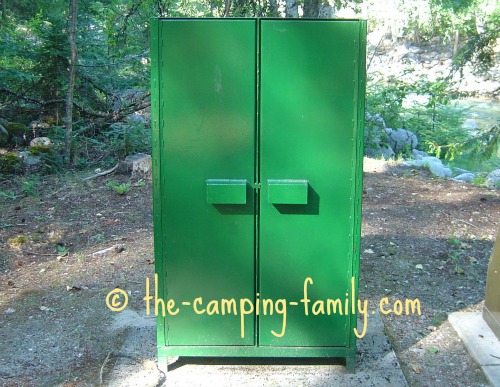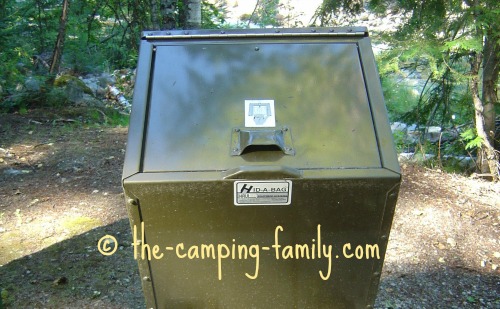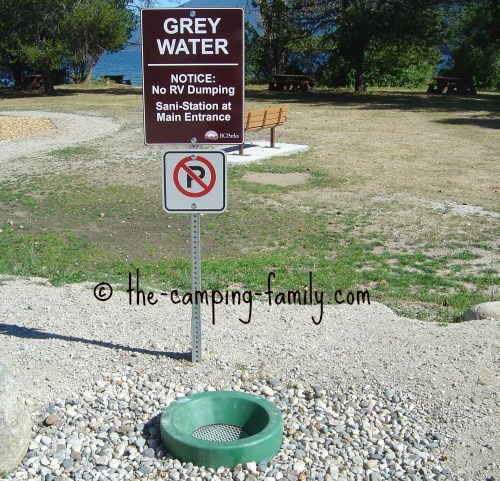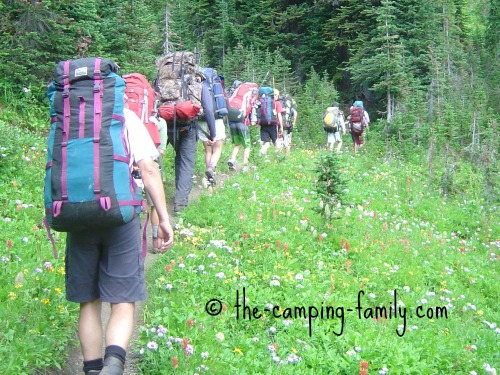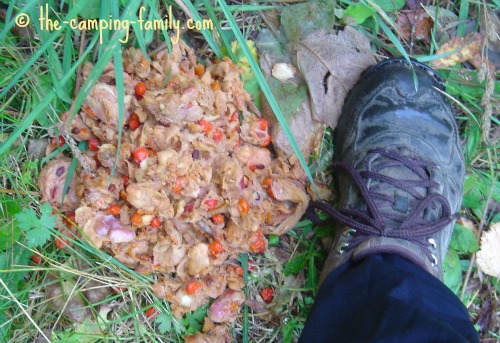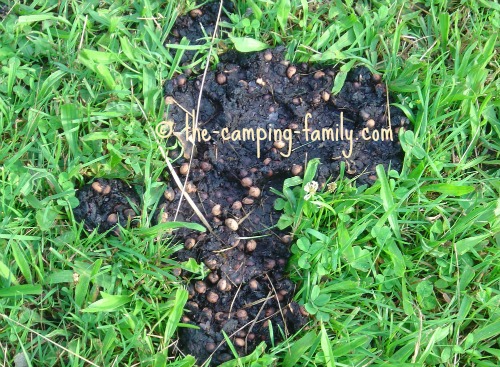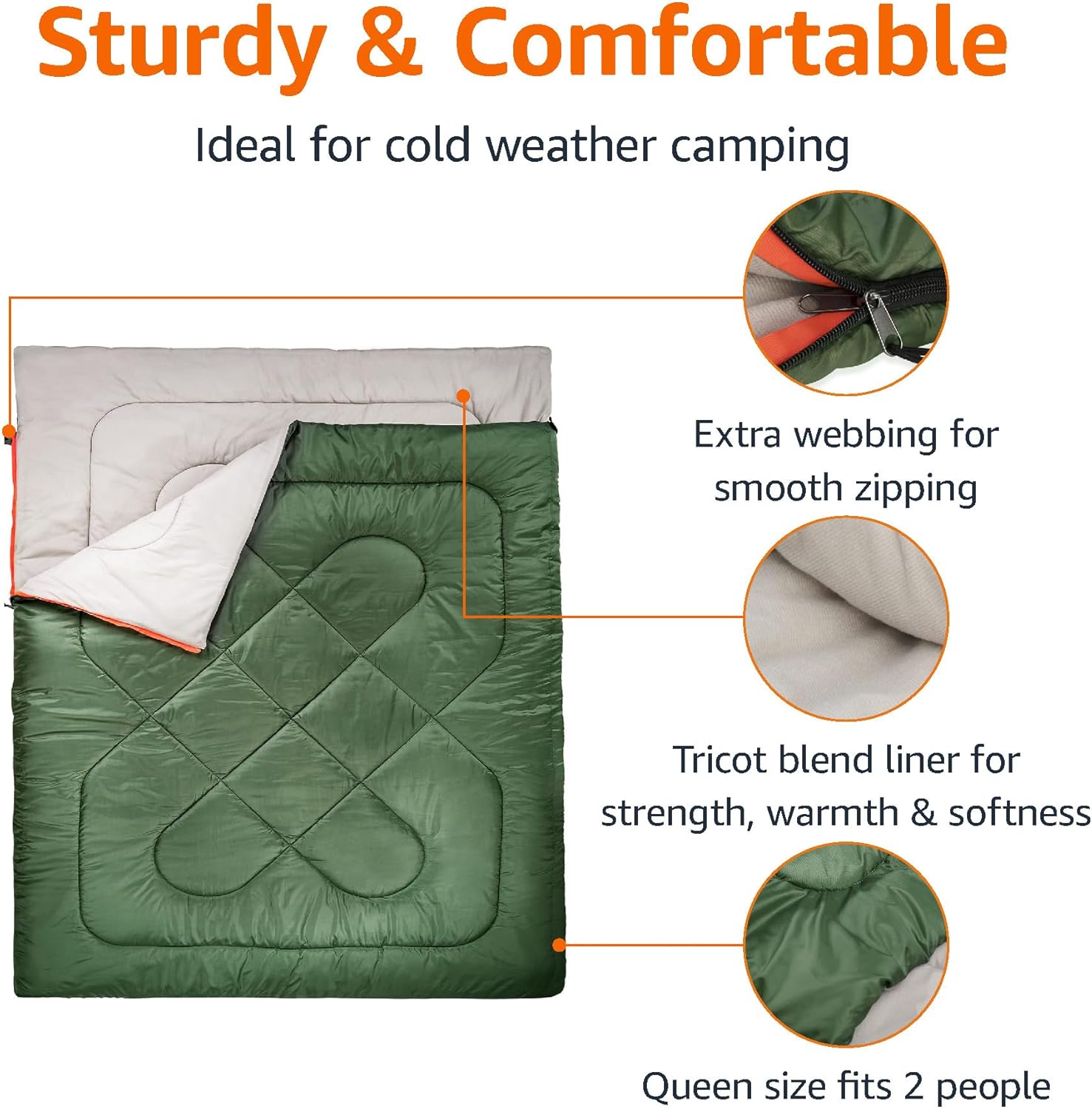Black Bear Safety Tips:
How To Avoid A Bear Encounter
You'll want to know these black bear safety tips if you are planning to camp in bear country! (These tips apply just as well to grizzly bears, too.)
Taking some common sense precautions will mean that you will probably never have an unpleasant meeting with a bear.
All 5 pieces in this great kitchen set stack together in any order - a great space saving kitchen gadget for your camping trip!
Read more and buy your kitchen tool set here!
Black bear safety at your campsite
If a bear learns that easy food can be found at a campsite, the bear will quickly become a "nuisance bear". Far too many bears are destroyed each year because they have lost their fear of humans.
These black bear safety tips are as much for the bears' protection as for your own.
Don't be part of the problem! Take these easy precautions.
Keep a clean camp
This sign says it all:
"Food and Odors Attract Bears. These items may NOT be left outside or in tents at any time, day or night, unless they are in immediate use:"
Store your food in your vehicle between meals. That includes your food boxes, fridge and cooler too.
Don't take food or toiletries into your tent
Anything with an odor should be stored in your vehicle. That includes things like lip balm, sunscreen, toothpaste and other toiletries.
Don't have a vehicle? Some campsites provide bear-proof lockers for hikers and bikers.
If you are camping in the wilderness and there is no bear-proof locker, store your food, toiletries, and cooking clothes in a sturdy bag, suspended between two trees, at least 15 feet/4 meters off the ground at some distance from camp.
Dispose of garbage appropriately
Many campgrounds in bear country provide bear-proof garbage cans.
If your campground doesn't, store your garbage in your vehicle. If you're backpacking, hang your garbage the same way you hang your food.
Don't dump your dishwater near your tent
Use a sink or grey water dump station if one is provided.
If there is no such facility, carry your water some distance from the campsite before dumping it.
Avoiding bear-human encounters
on the trail
Bears live in the wilderness, and humans like to explore the wilderness. That means that bears and humans will be in fairly close proximity fairly often.
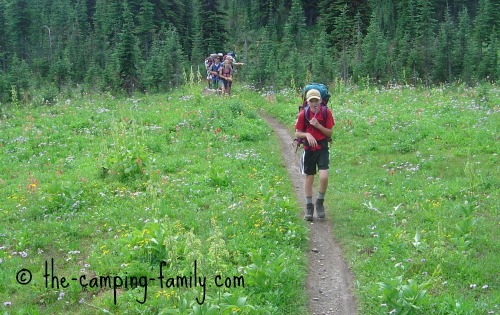
The good news
Bears usually don't want to meet up with us any more than we want to meet up with them!
Black bear safety can be as basic as warning bears that we are there, and giving them plenty of opportunity to get out of our way. Here's how:
Make noise
Sing, talk loudly, whoop and holler.
Some people carry "bear bells" which jingle constantly as the hiker walks. I don't have a lot of faith in these, because they are not very loud. More than once, I've hiked around a corner and come face to face with someone wearing bear bells. I didn't hear the bells until I'd already seen the hiker!
I suggest singing instead. Belting out a rousing chorus of "I've Been Working On The Railroad" or "This Old Man" will give the bears a much better chance to hear you and get out of your way.
Hike in a group
The more people in your group, the less likely it is that you will have a bear encounter.
Look for signs that a bear might be near
A posted sign is a pretty obvious signal to use extra caution!
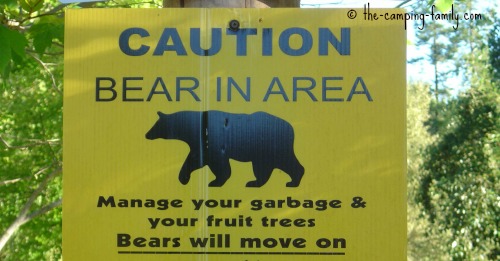
Watch for loaded berry bushes, scratches on tree trunks, or bear scat.
Bear scat (bear poop) will vary in appearance, depending on what the bear has been eating. You'll recognize it because a pile of it is big!
This bear must have found a loaded cherry tree. Look at all the pits!
Stay alert
Don't wear headphones or earbuds.
Actually, don't listen to music while you hike at all. Listen to nature all around you!
Be especially aware near running water
Bears come to streams and rivers to drink or to catch fish.
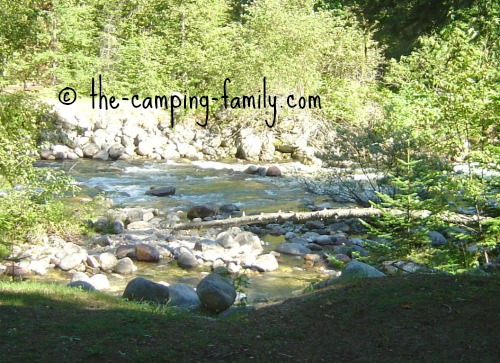
The sound of streams or waterfalls can mask sounds - both yours and the bear's - making an unpleasant surprise for both of you more likely.
Carry a bear spray dispenser - and know how to use it
If you follow these precautions, you will probably never have an encounter with a bear - but you should carry bear spray just in case.
CLICK HERE for further details and best price on the spray pictured below.
Here is everything you need to know about purchasing and using bear repellent spray.
I use these black bear safety strategies when I go hiking and
camping, and I have never had a bad experience with a bear. Although I
have seen a number of bears, none has ever approached me in a threatening
manner.
If
you follow these black bear safety tips, chances are that you will
never need to know what to do in case of a bear attack - but to be extra prepared, read these
bear attack tips!
For more camping safety tips, visit this page.
You can return to The Camping Family home page here.
Most Popular
Product of the Month
Amazon Basics 40°F Cool Weather Two-Person Sleeping Bag
Cool weather is here!
CLICK HERE for more information and best price
Recent Articles
-
Best Camping Destinations in Ireland
Jan 26, 26 06:50 AM
We walk you through the best camping destinations in Ireland, from dramatic coastal views, peaceful lakeside retreats, or mountain wilderness! -
On Top Of Spaghetti lyrics … including I Lost My Poor Meatball!
Jan 25, 26 05:01 AM
Trying to remember the words to On Top Of Spaghetti? Here are the complete lyrics to On Top of Old Smokey and the "Poor Meatball" song parody. -
Quotes About Camping With Family - discover your favorite quotes here!
Jan 21, 26 03:56 AM
Read the best quotes about camping with family at our Camping Quote page! The best quotes are here!
